人教版(新课程标准) 选修八Unit 2 Cloning复习课件(共62张PPT)
文档属性
| 名称 | 人教版(新课程标准) 选修八Unit 2 Cloning复习课件(共62张PPT) | 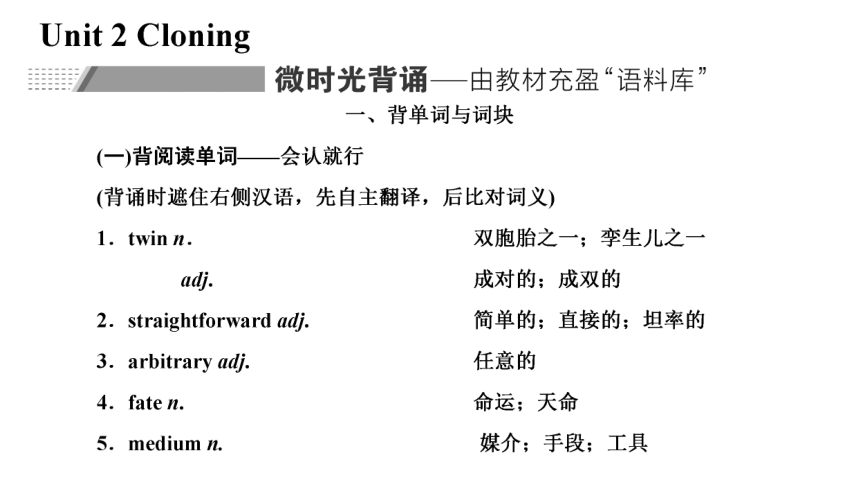 | |
| 格式 | zip | ||
| 文件大小 | 2.7MB | ||
| 资源类型 | 教案 | ||
| 版本资源 | 人教版(新课程标准) | ||
| 科目 | 英语 | ||
| 更新时间 | 2023-03-31 21:07:42 | ||
图片预览

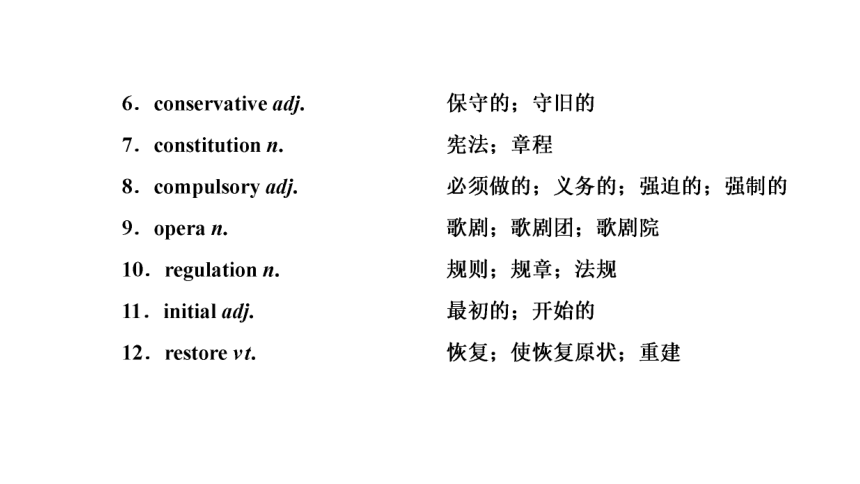
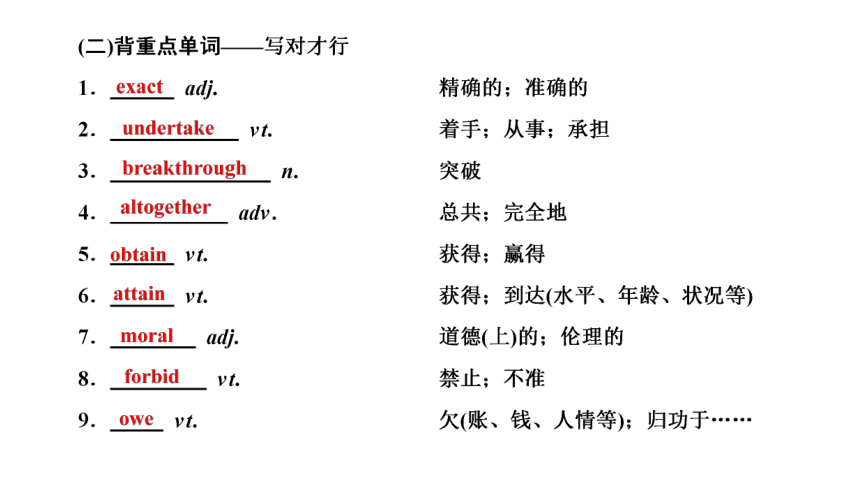
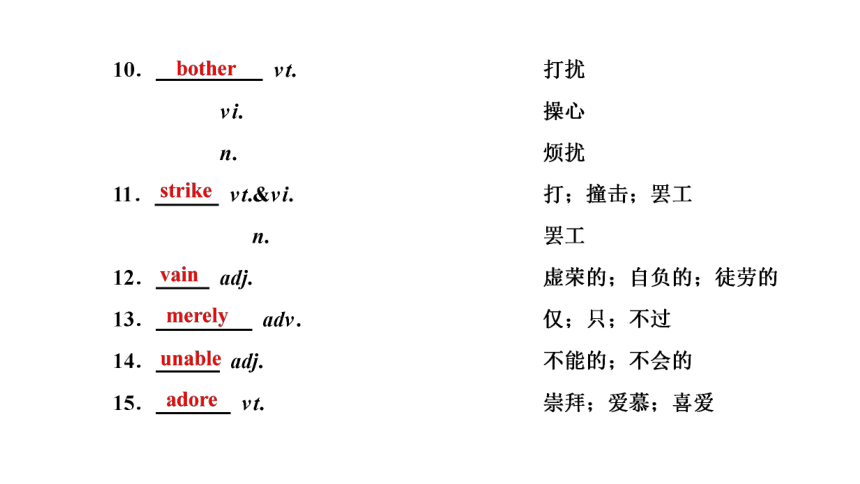
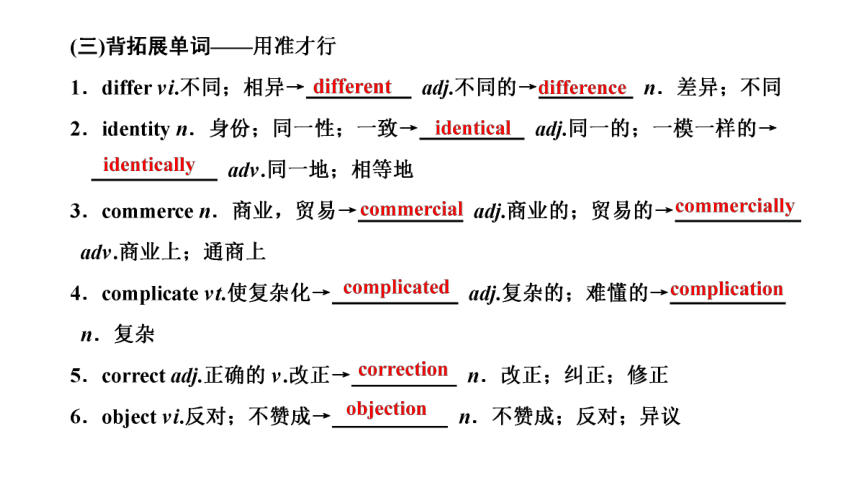
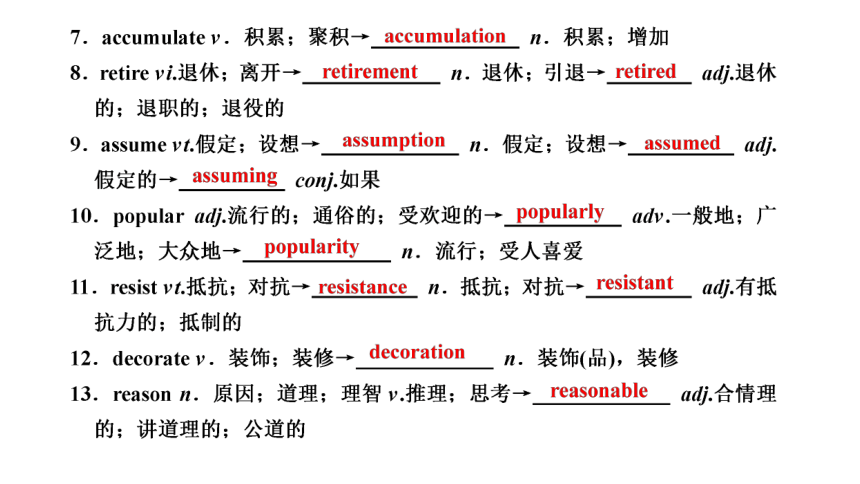
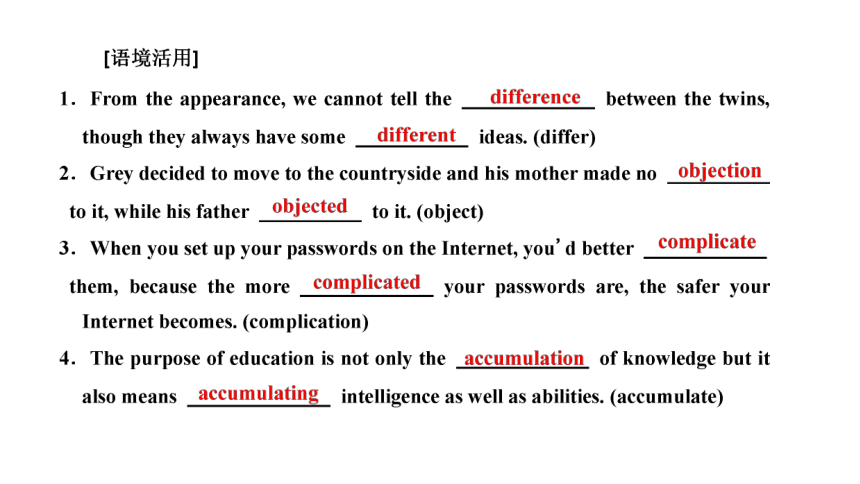
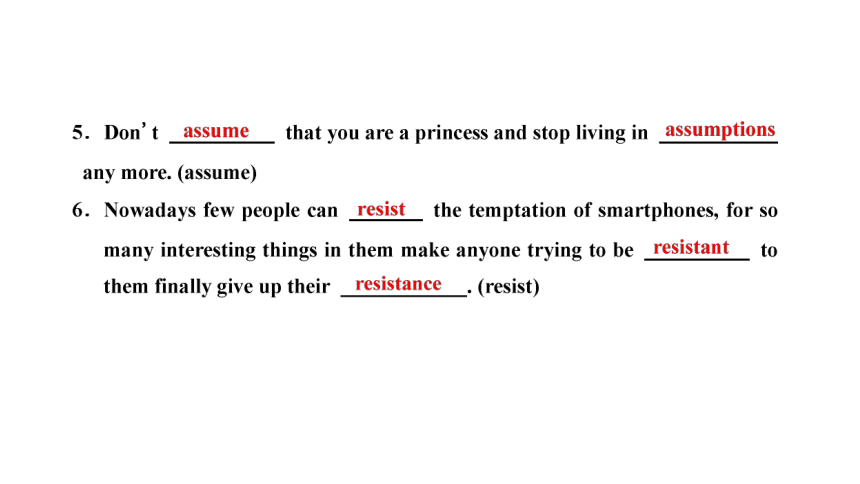
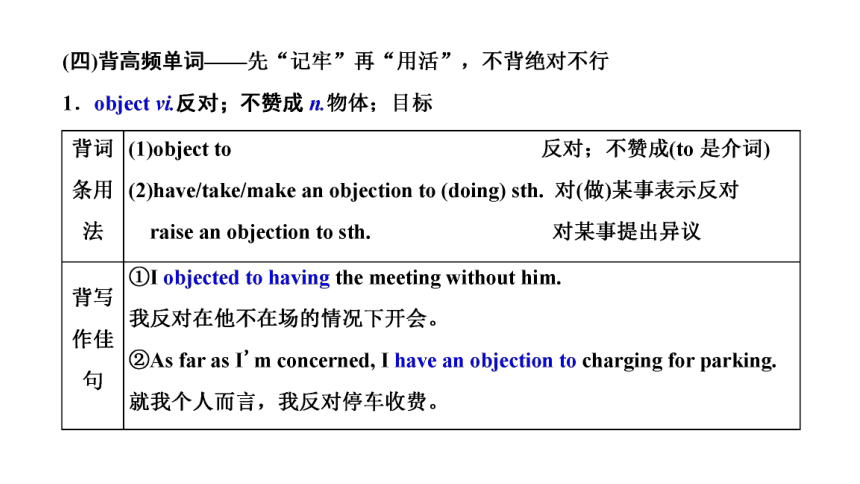
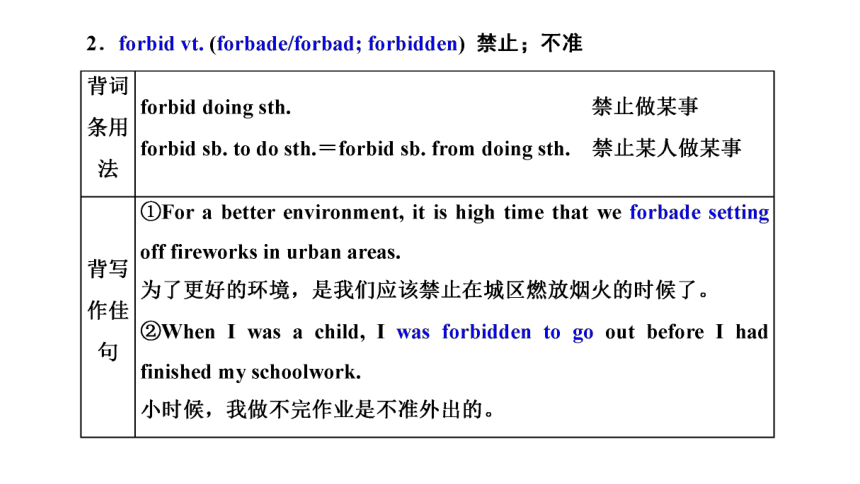
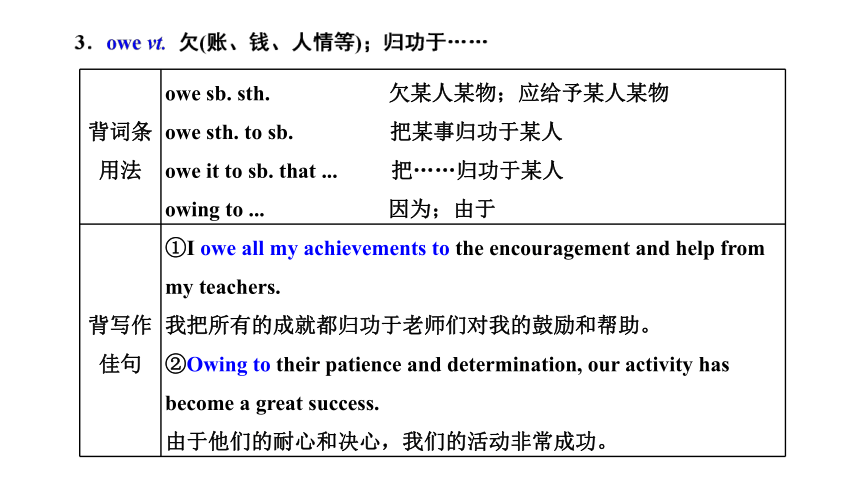
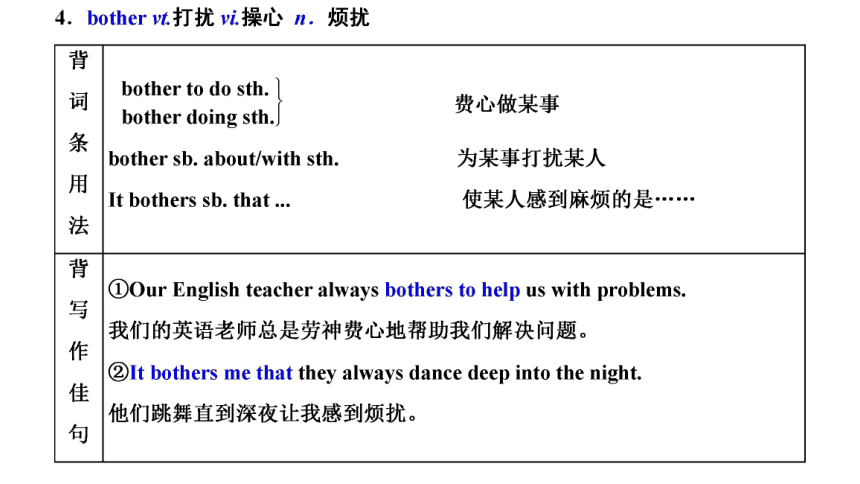
文档简介
(共62张PPT)
背词条用法 owe sb. sth. 欠某人某物;应给予某人某物
owe sth. to sb. 把某事归功于某人
owe it to sb. that ... 把……归功于某人
owing to ... 因为;由于
背写作佳句 ①I owe all my achievements to the encouragement and help from my teachers.
我把所有的成就都归功于老师们对我的鼓励和帮助。
②Owing to their patience and determination, our activity has become a great success.
由于他们的耐心和决心,我们的活动非常成功。
学案(三) 高考语篇的价值发掘——提升学科素养
2020·新高考全国卷Ⅰ·阅读理解D篇——对接课标主题:社会热点问题
According to a recent study in the Journal of Consumer Research, both the size and consumption habits of our eating companions can influence our food intake. And contrary to existing research that says you should avoid eating with heavier people who order large portions (份), it's the beanpoles with big appetites you really need to avoid.
To test the effect of social influence on eating habits, the researchers conducted two experiments. In the first, 95 undergraduate women were individually invited into a lab to ostensibly (表面上) participate in a study about movie viewership. Before the film began, each woman was asked to help herself to a snack. An actor hired by the researchers grabbed her food first. In her natural state, the actor weighed 105 pounds. But in half the cases she wore a specially designed fat suit which increased her weight to 180 pounds.
Both the fat and thin versions of the actor took a large amount of food. The participants followed suit, taking more food than they normally would have. However, they took significantly more when the actor was thin.
For the second test, in one case the thin actor took two pieces of candy from the snack bowls. In the other case, she took 30 pieces. The results were similar to the first test: the participants followed suit but took significantly more candy when the thin actor took 30 pieces.
The tests show that the social environment is extremely influential when we're making decisions. If this fellow participant is going to eat more, so will I. Call it the “I'll have what she's having” effect. However, we'll adjust the influence. If an overweight person is having a large portion, I'll hold back a bit because I see the results of his eating habits. But if a thin person eats a lot, I'll follow suit. If he can eat much and keep slim, why can't I
?好题不厌百回做,每做一次都有新发现
语篇解读:本文是一篇说明文。研究表明,与你一同进食的同伴会影响你的饮食习惯,想要减肥的人应当避免同食量大的瘦人一起进食。
1.What is the recent study mainly about
A.Food safety. B.Movie viewership.
C.Consumer demand. D.Eating behavior.
解析:主旨大意题。通读全文可知,第一段为全文的主题段,即《消费者研究杂志》最近的一项研究表明,我们的饮食同伴的体型和饮食习惯都会影响我们的食物摄入量,而且要避免同食量大的瘦人一起进食。本文主要介绍了饮食行为,故D项正确。
答案:D
2.What does the underlined word “beanpoles” in paragraph 1 refer to
A.Big eaters. B.Overweight persons.
C.Picky eaters. D.Tall thin persons.
解析:词义猜测题。根据第一段中的画线词所在句可知,研究表明,与现存的研究发现(应该避免和食量大的胖人一起吃饭)相反,你真正需要避开的是胃口大的又高又瘦的人。根据“contrary to”可知,画线词与heavier people 含义相反,故D项正确。
答案:D
3.Why did the researchers hire the actor
A.To see how she would affect the participants.
B.To test if the participants could recognize her.
C.To find out what she would do in the two tests.
D.To study why she could keep her weight down.
解析:细节理解题。根据第二段第一句可知,为了验证社交对饮食习惯的影响,研究人员进行了两个实验;再结合下文介绍的两个实验可知,聘用演员参加实验旨在查看演员对参加实验的人的饮食习惯的影响,故A项正确。
答案:A
4.On what basis do we “adjust the influence” according to the last paragraph
A.How hungry we are.
B.How slim we want to be.
C.How we perceive others.
D.How we feel about the food.
解析:推理判断题。根据最后一段中的“If this fellow participant ...his eating habits.”可知,我们对自己饮食的调整是以分析他人的饮食习惯和结果(即如何看待他人)为基础的,故C 项正确。
答案:C
?文本精读固基础,高考强调基础扎实
(一)由文本积阅读词汇
1.consumption n. ___________
2.companion n. ___________
3.intake n. ________________
4.appetite n. __________
消费;消耗
同伴;伙伴
(食物等的)摄取量
食欲;胃口
5.undergraduate n. _______________
6.individually adv. _______
7.viewership n. ___________________
8.version n. ___________
9.participant n. _______
10.influential adj. ___________
大学生;本科生
分别地
观众人数;观众类型
版本;类型
参与者
有影响力的
D
B
A
D
B
(三)由文本积主题词块
1.influence our food intake _____________________
2.contrary to ___________
3.in her natural state _________________
4.follow suit _______
5.be similar to ___________
6.hold back a bit _________
影响我们的食物摄入量
与……相反
在她的自然状态下
跟着做
与……相似
稍作保留
(四)用文本词汇替换蓝体词汇
1.But mother never eats too much, because she wants to keep thin. _____
2.The page was covered with a mass of figures. ________________
3.So parents must pay attention to themselves, because if they do the wrong thing, the children will learn it. _________
slim
a large amount of
follow suit
(五)在语境中悟微点语法
1.If this fellow participant is going to eat more, so will I.
分析:句中________是倒装句,这是“so+助动词/情态动词/be动词+主语”的倒装形式,不同的主语完成相同的动作,so译为“也”,且主语为代词。因从句用了一般将来时,主句也用一般将来时。
[对点练] 完成句子
①You are young and________ .
你年轻,我也年轻。
②She likes music and_______ .
她喜欢音乐,我也喜欢。
③If he can do it,________ .
要是他能做此事,我也能。
so will I
so am I
so do I
so can I
2.But if a thin person eats a lot, I'll follow suit.
分析:本句是“主将从现”的语法现象。if从句用一般现在时,主句用____________。
[对点练] 完成句子
①If you turn on the television, ________________________showing happy families.
如果你打开电视,你会看到显示幸福家庭的广告。
②_________________, they will talk with you in greater details.
如果你接受这份工作,他们将和你谈谈更多细节。
一般将来时
you will see advertisements
If you take the job
(六)在语境中赏表达之美
1.(赏用词之美)The participants followed suit, taking more food than they normally would have.
赏析:作者使用了follow suit和normally准确描述了实验中共同进餐的人对对方的影响——参与者也照做了,吃了比正常情况下更多的食物。
2.(赏意境之美)If an overweight person is having a large portion, I'll hold back a bit because I see the results of his eating habits.
赏析:一位超重的人(an overweight person),吃着大份的饭食,共同进餐的人会考虑自己这样吃饭后的体型。这样的画面感、代入感,如果一起进餐的人是你,会不会因此而稍加控制(hold back a bit)呢?
3.(赏修辞之美)If he can eat much and keep slim, why can't I
赏析:作者用反问的修辞手法结束整篇文章,用否定形式反问表示肯定,只问不答,答案暗含在反问句中——想要减肥的人应当避免同食量大的瘦人一起进食。态度鲜明,发人深思,增强了文章的气势和说服力。
“课下主题训练”见“课下主题训练(二)”
(单击进入电子文档)
谢 谢 观 看
背词条用法 owe sb. sth. 欠某人某物;应给予某人某物
owe sth. to sb. 把某事归功于某人
owe it to sb. that ... 把……归功于某人
owing to ... 因为;由于
背写作佳句 ①I owe all my achievements to the encouragement and help from my teachers.
我把所有的成就都归功于老师们对我的鼓励和帮助。
②Owing to their patience and determination, our activity has become a great success.
由于他们的耐心和决心,我们的活动非常成功。
学案(三) 高考语篇的价值发掘——提升学科素养
2020·新高考全国卷Ⅰ·阅读理解D篇——对接课标主题:社会热点问题
According to a recent study in the Journal of Consumer Research, both the size and consumption habits of our eating companions can influence our food intake. And contrary to existing research that says you should avoid eating with heavier people who order large portions (份), it's the beanpoles with big appetites you really need to avoid.
To test the effect of social influence on eating habits, the researchers conducted two experiments. In the first, 95 undergraduate women were individually invited into a lab to ostensibly (表面上) participate in a study about movie viewership. Before the film began, each woman was asked to help herself to a snack. An actor hired by the researchers grabbed her food first. In her natural state, the actor weighed 105 pounds. But in half the cases she wore a specially designed fat suit which increased her weight to 180 pounds.
Both the fat and thin versions of the actor took a large amount of food. The participants followed suit, taking more food than they normally would have. However, they took significantly more when the actor was thin.
For the second test, in one case the thin actor took two pieces of candy from the snack bowls. In the other case, she took 30 pieces. The results were similar to the first test: the participants followed suit but took significantly more candy when the thin actor took 30 pieces.
The tests show that the social environment is extremely influential when we're making decisions. If this fellow participant is going to eat more, so will I. Call it the “I'll have what she's having” effect. However, we'll adjust the influence. If an overweight person is having a large portion, I'll hold back a bit because I see the results of his eating habits. But if a thin person eats a lot, I'll follow suit. If he can eat much and keep slim, why can't I
?好题不厌百回做,每做一次都有新发现
语篇解读:本文是一篇说明文。研究表明,与你一同进食的同伴会影响你的饮食习惯,想要减肥的人应当避免同食量大的瘦人一起进食。
1.What is the recent study mainly about
A.Food safety. B.Movie viewership.
C.Consumer demand. D.Eating behavior.
解析:主旨大意题。通读全文可知,第一段为全文的主题段,即《消费者研究杂志》最近的一项研究表明,我们的饮食同伴的体型和饮食习惯都会影响我们的食物摄入量,而且要避免同食量大的瘦人一起进食。本文主要介绍了饮食行为,故D项正确。
答案:D
2.What does the underlined word “beanpoles” in paragraph 1 refer to
A.Big eaters. B.Overweight persons.
C.Picky eaters. D.Tall thin persons.
解析:词义猜测题。根据第一段中的画线词所在句可知,研究表明,与现存的研究发现(应该避免和食量大的胖人一起吃饭)相反,你真正需要避开的是胃口大的又高又瘦的人。根据“contrary to”可知,画线词与heavier people 含义相反,故D项正确。
答案:D
3.Why did the researchers hire the actor
A.To see how she would affect the participants.
B.To test if the participants could recognize her.
C.To find out what she would do in the two tests.
D.To study why she could keep her weight down.
解析:细节理解题。根据第二段第一句可知,为了验证社交对饮食习惯的影响,研究人员进行了两个实验;再结合下文介绍的两个实验可知,聘用演员参加实验旨在查看演员对参加实验的人的饮食习惯的影响,故A项正确。
答案:A
4.On what basis do we “adjust the influence” according to the last paragraph
A.How hungry we are.
B.How slim we want to be.
C.How we perceive others.
D.How we feel about the food.
解析:推理判断题。根据最后一段中的“If this fellow participant ...his eating habits.”可知,我们对自己饮食的调整是以分析他人的饮食习惯和结果(即如何看待他人)为基础的,故C 项正确。
答案:C
?文本精读固基础,高考强调基础扎实
(一)由文本积阅读词汇
1.consumption n. ___________
2.companion n. ___________
3.intake n. ________________
4.appetite n. __________
消费;消耗
同伴;伙伴
(食物等的)摄取量
食欲;胃口
5.undergraduate n. _______________
6.individually adv. _______
7.viewership n. ___________________
8.version n. ___________
9.participant n. _______
10.influential adj. ___________
大学生;本科生
分别地
观众人数;观众类型
版本;类型
参与者
有影响力的
D
B
A
D
B
(三)由文本积主题词块
1.influence our food intake _____________________
2.contrary to ___________
3.in her natural state _________________
4.follow suit _______
5.be similar to ___________
6.hold back a bit _________
影响我们的食物摄入量
与……相反
在她的自然状态下
跟着做
与……相似
稍作保留
(四)用文本词汇替换蓝体词汇
1.But mother never eats too much, because she wants to keep thin. _____
2.The page was covered with a mass of figures. ________________
3.So parents must pay attention to themselves, because if they do the wrong thing, the children will learn it. _________
slim
a large amount of
follow suit
(五)在语境中悟微点语法
1.If this fellow participant is going to eat more, so will I.
分析:句中________是倒装句,这是“so+助动词/情态动词/be动词+主语”的倒装形式,不同的主语完成相同的动作,so译为“也”,且主语为代词。因从句用了一般将来时,主句也用一般将来时。
[对点练] 完成句子
①You are young and________ .
你年轻,我也年轻。
②She likes music and_______ .
她喜欢音乐,我也喜欢。
③If he can do it,________ .
要是他能做此事,我也能。
so will I
so am I
so do I
so can I
2.But if a thin person eats a lot, I'll follow suit.
分析:本句是“主将从现”的语法现象。if从句用一般现在时,主句用____________。
[对点练] 完成句子
①If you turn on the television, ________________________showing happy families.
如果你打开电视,你会看到显示幸福家庭的广告。
②_________________, they will talk with you in greater details.
如果你接受这份工作,他们将和你谈谈更多细节。
一般将来时
you will see advertisements
If you take the job
(六)在语境中赏表达之美
1.(赏用词之美)The participants followed suit, taking more food than they normally would have.
赏析:作者使用了follow suit和normally准确描述了实验中共同进餐的人对对方的影响——参与者也照做了,吃了比正常情况下更多的食物。
2.(赏意境之美)If an overweight person is having a large portion, I'll hold back a bit because I see the results of his eating habits.
赏析:一位超重的人(an overweight person),吃着大份的饭食,共同进餐的人会考虑自己这样吃饭后的体型。这样的画面感、代入感,如果一起进餐的人是你,会不会因此而稍加控制(hold back a bit)呢?
3.(赏修辞之美)If he can eat much and keep slim, why can't I
赏析:作者用反问的修辞手法结束整篇文章,用否定形式反问表示肯定,只问不答,答案暗含在反问句中——想要减肥的人应当避免同食量大的瘦人一起进食。态度鲜明,发人深思,增强了文章的气势和说服力。
“课下主题训练”见“课下主题训练(二)”
(单击进入电子文档)
谢 谢 观 看
